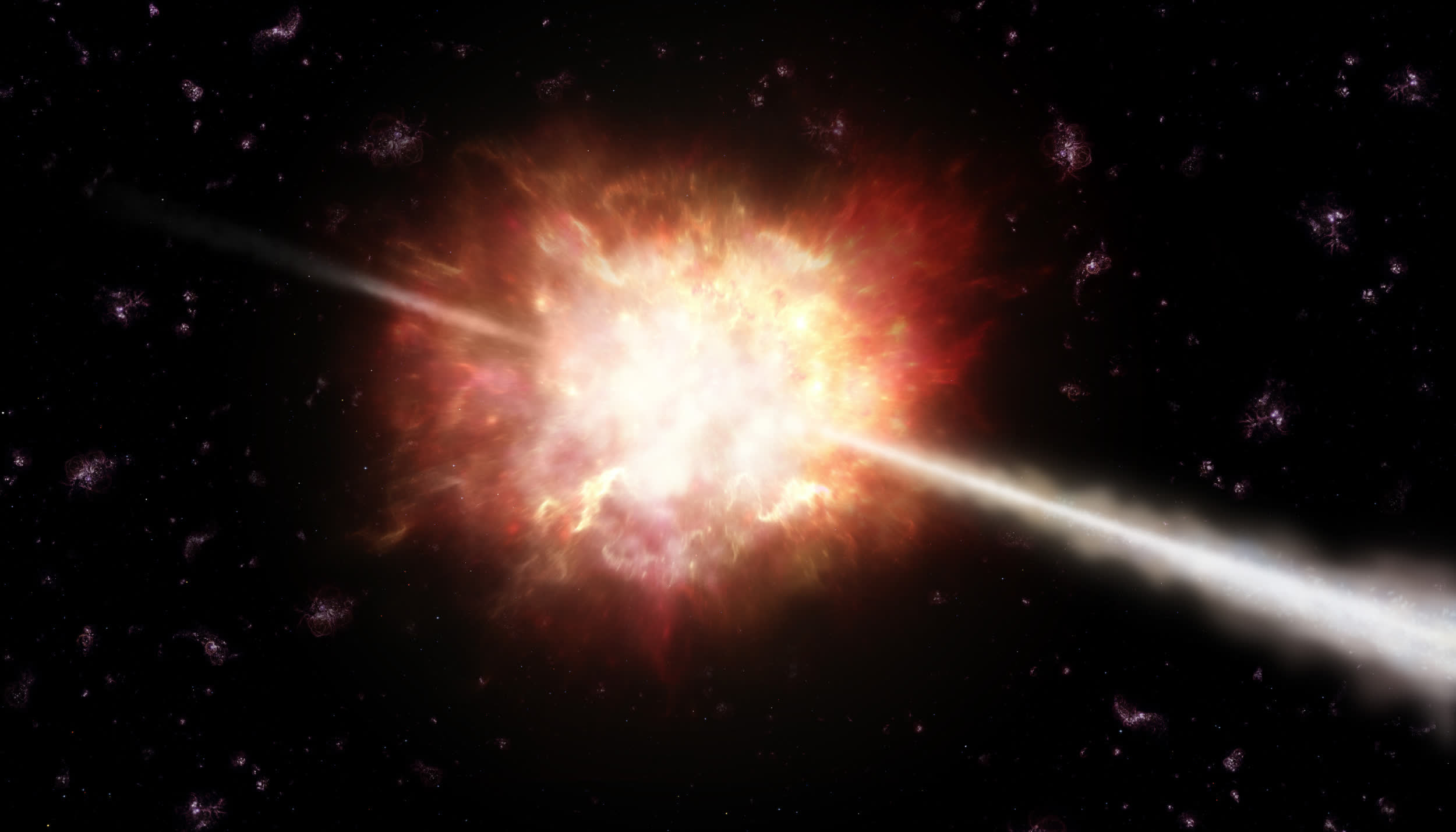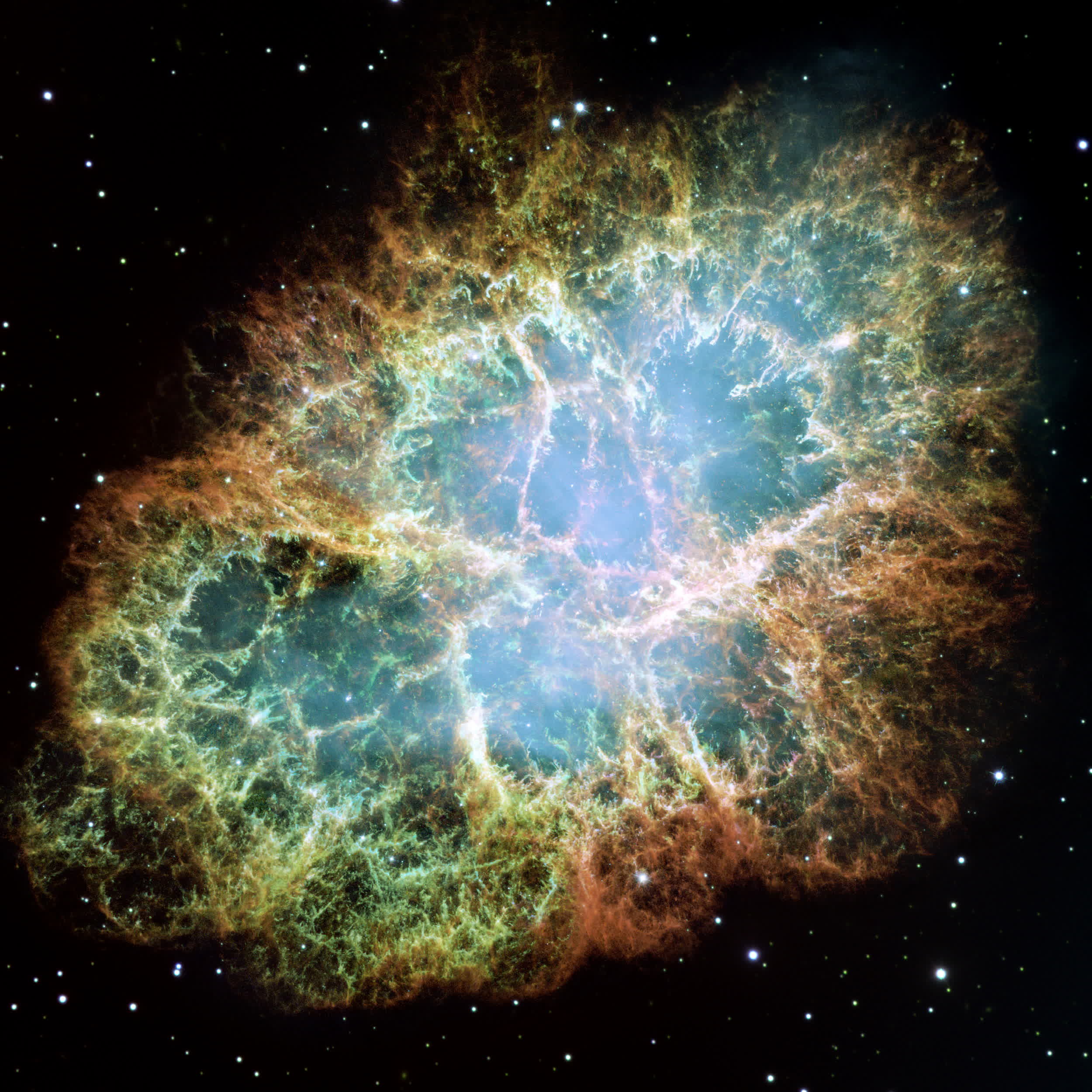Hostile Cosmos: Gamma-ray bursts (GRBs) are powerful energetic explosions observed by astronomers in distant galaxies. NASA describes GRBs as the most powerful class of explosions known in the universe, and they are primarily observed in connection with dying stars and resulting supernova events.

Researchers in 2022 discovered the brightest GRB ever recorded. The event, labeled GRB 221009A, has been dubbed the "biggest of all time," or BOAT. Newly published research confirms that this unprecedented burst of electromagnetic energy originated from a star collapsing into a supernova.
While this discovery solves a mystery, the aftermath of GRB 221009A still presents some puzzling evidence that challenges existing theories about supernovae.
The researchers behind the study observed GRB 221009A using the James Webb Space Telescope. Leveraging JWST's capabilities, the international team focused on the near-infrared portion of the electromagnetic spectrum, leading to a clear detection of the associated supernova event. This supernova was so extreme that it saturated most of the world's gamma-ray detectors two years ago.
GRB 221009A was detected 2.4 billion light-years away from Earth, in the direction of the constellation Sagitta, and lasted a few hundred seconds. Scientists noted that it emitted some of the highest-energy photons ever recorded by orbiting gamma-ray detectors. Such an event occurs on our planet only once every 10,000 years, making it a rare opportunity for detailed observation and study, thanks to our advanced technology.

The brightness of the BOAT obscured any potential sight for a subsequent SN event in the following months. To investigate further, a team of Harvard University scientists analyzed data collected by JWST six months after the initial burst. The space telescope detected signs of a star exploding into a supernova, but the SN's brightness fell short of expectations.
Lead researcher Peter Blanchard noted that the observed SN through JWST appeared "fairly normal" compared to supernovae associated with less powerful GRBs. The anticipation was for a highly energetic supernova following GRB 221009A, but this did not materialize. After confirming the BOAT's origin as a supernova, Blanchard's team searched for signs of heavy elements produced within the collapsing star.
The cosmic origins of heavy elements like gold and platinum remain a puzzle in astronomy. While the merging of two neutron stars is a known source, it cannot account for the abundance of heavy atoms in the universe. Another possibility is a massive star collapsing, which could lead to an unprecedented GRB like the BOAT.
However, upon examining the emissions of GRB 221009A, the researchers found no signature of heavy elements. Astronomers are now searching for an explanation for the highly energetic BOAT originating from a standard SN while exploring other potential sources of dense metals in the universe.
Biggest gamma-ray burst ever recorded came from a "regular" supernova